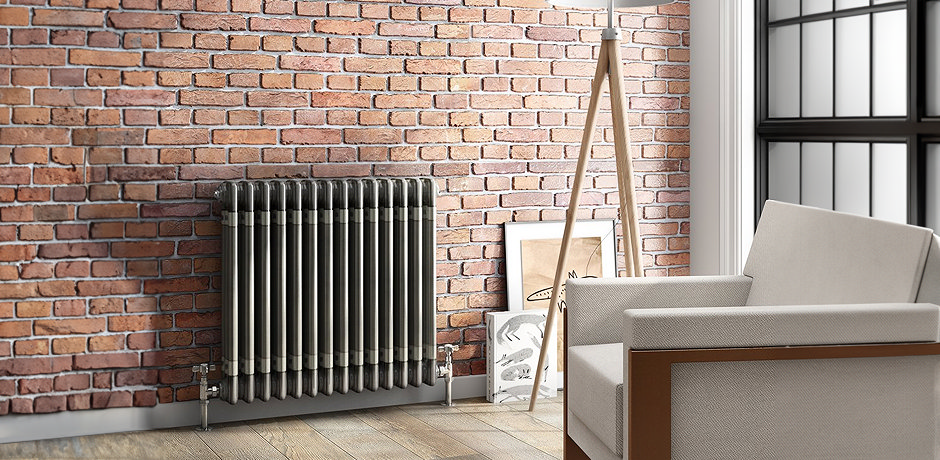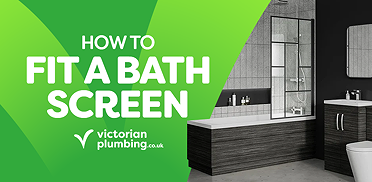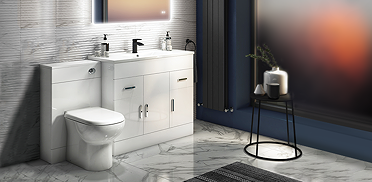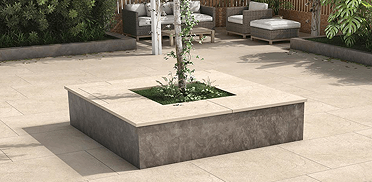Grab Up To 60% Off In Our February Sale!
Valentine's Deal + Extra 10% Off Taps With TAPS10. Ends:
Different Types of Radiators
Different Types of Radiators
Radiators are one of the most important aspects in your home. There are so many different types of radiators, and each is designed for a specific purpose. So it is important that you know which radiator to choose depending on your needs.

There is a radiator in almost every room in your home, whether it be the bathroom, kitchen or bedroom. And when it comes to choosing a radiator, it is important that you choose it correctly. With so many different types of radiators available, it is easy to buy a radiator solely for its looks. But it is important to know the differences between all these radiators, as each radiator is designed for a specific purpose, which may not be appropriate for your room.
Different Types of Radiators You Can Consider for Your Home
Single Panel Radiators

A single panel radiator is ideal for small rooms. This is because, unlike other radiators, they only have one convector panel, which means there is less surface area to emit heat from. So if you are looking for a radiator that will effectively heat up your small room, a single panel radiator is the right choice for you. Despite having only one convector panel, they can eat up a smaller space just as efficiently as a double panel radiator.
Double Panel Radiators

Double panel radiators, also known as type 22 radiators, have two convector panels. Which makes them especially good at heating up larger rooms. Having two convector panels means there is a much larger surface area for heat emission. So, if you are in the market for a radiator that will effectively heat up your larger rooms, a double panel radiator is the right choice for you.
Horizontal Radiators

Horizontal radiators are more traditional. They are a great choice for rooms that are prone to being cold and need a radiator that will warm the room quickly and effectively. As horizontal radiators are very wide and lower to the floor, they have the potential to draw in more air, which will be heated up. Which means your room will start to feel warmer much quicker. However, as they are so wide, not everyone will have the space in their home for a horizontal radiator.
Vertical Radiators

Despite what many people believe, there is not much difference between horizontal and vertical radiators. Vertical radiators are a great option if you are lacking floor or wall space. Due to their vertical design, by the time the air reaches the top of the radiator, it has already heated up. Which means it is the lower half of the radiator that is emitting the most heat. However, this does not affect the heat output as much as you might think.
Column Radiators

Column radiators offer a more traditional design that mimics that of cast iron style radiators. Column radiators are a great heating solution as they heat up very quickly. This is due to their large surface area and spacing in between each column, which allows air to pass through and be heated up. Another benefit of column radiators is that they are more energy efficient. As they are typically made from durable steel, these radiators will stay warm for much longer, which means you can turn off your heating much sooner and still feel the benefits of your radiator.
Heated Towel Rails

As the name suggests, heated towel rails are a type of radiator that is designed to keep towels warm. Making them a great addition to bathrooms. They also heat up much faster than standard radiators, but due to their reduced surface area, these radiators will not heat up your room.
Electric Radiators

Electric radiators are a great choice if you are looking for an energy saving heating solution. They allow you to target specific rooms in your home, which means that no energy is being wasted in an unused room. These are a great option for commonly used rooms, such as living rooms and bedrooms.
Top Radiator Materials
Another thing to keep in mind when you are radiator shopping is the material. Different materials can affect how efficiently a radiator will heat up and emit heat. So when you are looking for your next radiator, keep an eye out for these materials:
- Aluminium - Requires less water, which means the radiator will heat up faster.
- Cast iron - Stays hot for a long time, even after you turn the heating off.
- Durable Steel - Mimics the qualities of cast iron but is much lighter.
- Copper - Highly conductive, which means it will heat up faster, but is more expensive.
- Stainless Steel - A long lasting material with anti-rust and anti-corrosion properties.

Megan
Megan is an expert bathroom blogger, she enjoys writing helpful DIY articles and bathroom inspo blogs. As well as specialist bathroom advice, Megan also shares expert how-to blogs with step by step guides.


